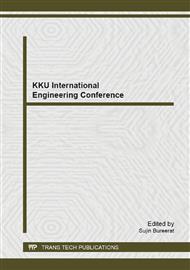p.1462
p.1467
p.1472
p.1477
p.1482
p.1488
p.1497
p.1502
p.1507
Prediction of Evaluation Learning by Using Neuro-Fuzzy System
Abstract:
Artificial intelligent techniques are being actively applied in many applications. With their powerful learning capability of neural networks and reducing the optimizing search space by prior knowledge rules of Fuzzy systems have been proven to be rather efficiency. In this research, the hybrid Neuro-Fuzzy system (NF) is proposed to be utilized as a predictor of the Grade Point Average (GPA) of students for future planning where the Radial Basis Function (RBF) is implemented as a neuro-fuzzy system. The NFs parameters consisted of centre and width of the Gaussian membership function and weight between input layer and output layer are automatically tuned by using Genetic Algorithms (GA) referred as NF-GA. The collected data is then tested and trained through NF-GA system with Minimum Mean Square Error (MMSE) technique. It has been shown that our proposed model is capable of prediction GPA by accurately 93%.The performance comparison between the proposed NF-GA and Multiple Regression Analysis (MRA) gives performance significantly by reducing the average error of the prediction down to 10%. Keywords: Neuro-fuzzy system, Genetic Algorithms, Multiple Regression Analysis, Radial Basis Function.
Info:
Periodical:
Pages:
1482-1487
Citation:
Online since:
May 2014
Price:
Сopyright:
© 2014 Trans Tech Publications Ltd. All Rights Reserved
Share:
Citation:


